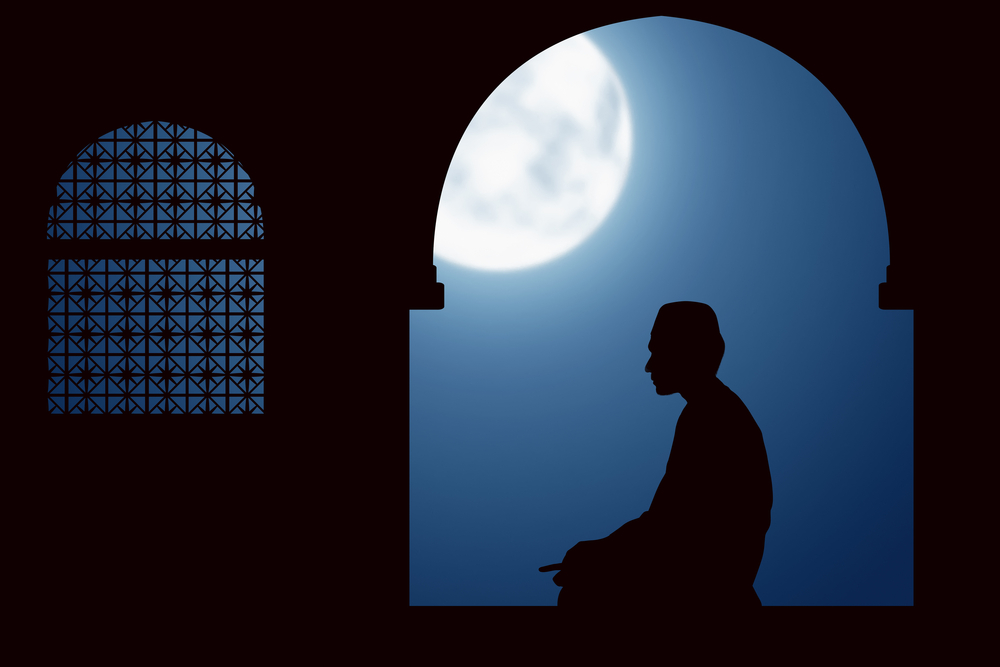
Qiyam Al Layl is a significant practice in Islam where Muslims perform voluntary prayers during the night. This practice holds great spiritual importance and is highly recommended for those seeking closeness to Allah. It was a consistent practice of the Prophet Muhammad (peace and blessings be upon him.Embracing online courses is a powerful way to deepen your understanding of Qiyam Al-Layl and other Islamic teachings, allowing you to connect with professional instructors and fellow learners from the comfort of your home.
Al-Dirassa Institute offers valuable resources and courses focused on the teachings of Islam, including the principles of Qiyam Al-Layl and the nuances of Islamic jurisprudence, helping students deepen their understanding of religious practices.
Praying Qiyam Al-Layl, or the night prayer, is a rewarding practice in Islam that allows believers to seek closeness to Allah during the quiet hours of the night.
Steps to Pray Qiyam Al-Layl :
Number of Rakats: The Prophet (SAW) used to pray eleven rakats during Qiyam Al-Layl. This consisted of multiple units of prayer performed in pairs.
Coupled Salah (Muthanna, Muthanna): The Prophet (SAW) would pray in pairs, meaning he would complete two rakats, say the tasleem (salutation of peace), and then proceed to pray another two, and so on.
Prolonged Recitation and Prostration: His recitation during the prayer was lengthy, and he spent extended periods both kneeling (ruku’) and prostration (sujood). This reflection and submission brought him closer to Allah.
Starting with Light Rakats: The Prophet (SAW) would begin Qiyam Al-Layl with two light rakats before extending his subsequent rakats.
Qiyam Al-Layl is not just a form of prayer, but a means to gain immense spiritual rewards. Below are seven key benefits that Muslims can get from this beautiful practice:
Completes the Shortcomings of Regular Prayers: Any gaps or deficiencies in our obligatory prayers can be compensated by performing Qiyam Al-Layl.
Strengthens the Connection with Allah: Praying at night fosters a closer and more intimate relationship with Allah, as it’s done when distractions are minimal.
Cultivates Sincerity (Ikhlas): Since Qiyam Al-Layl is often performed privately, without others watching, it fosters sincerity, where the believer seeks no reward except from Allah.
Keeps You Steadfast on the Deen: It helps Muslims stay consistent in their practice of Islam, fostering a sense of discipline that spills over into their daily worship.
Ideal Time for Du’a: The late hours of the night are one of the best times to make supplications to Allah for one’s needs in this life and the hereafter.
Repentance and Forgiveness: Qiyam Al-Layl serves as a way to seek forgiveness and express repentance for sins committed.
Gratitude for Allah’s Blessings: It’s an act of gratitude for the countless blessings Allah has bestowed upon us.
Qiyam al-Layl: Refers to any voluntary night prayer performed after ‘Isha and before Fajr. It includes various forms of worship and can be prayed at any time during the night.
Tahajjud: A specific type of Qiyam al-Layl, performed after waking from sleep, usually in the last third of the night. It focuses on personal supplications and forgiveness.
Numerous hadiths and Quranic verses emphasize the significance of Qiyam Al-Layl, motivating Muslims to engage in this form of worship.
Allah’s Command in Surah Al-Muzzammil: Allah says in the Quran:
“O you who wraps himself [in clothing], Stand the night [in prayer] except for a little” (Al-Muzzammil 73:1-2).
This verse was one of the first revelations, instructing the Prophet (SAW) to pray at night. This prayer helped the Prophet (SAW) bear the heavy mission of prophethood, as it strengthened his spiritual connection with Allah.
The Best Prayer According to the Prophet (SAW): The Prophet (SAW) said:
“The most beloved prayer to Allah is the prayer of Dawood. He used to sleep half the night, then pray for one-third of it, and then sleep for a sixth of it” (Sahih Al-Bukhari).
This hadith guides us on the best duration and timing for Qiyam Al-Layl. Praying for one-third of the night, especially during its last third, is considered the most virtuous time to stand in prayer.
This hadith highlights the immense reward and mercy available during Qiyam Al-Layl. Allah asks for those making Dua, seeking forgiveness, and making requests. What greater motivation could there be?
At Al-Dirassa Institute, we emphasize the importance of teaching children the principles of Islamic jurisprudence and religious teachings, providing them with a strong foundation to understand and practice their faith from an early age.
To know more: Learning How to Pray in Islam
Don’t want to go through the translation anymore?
30 free minutes with your qualified Egyptian teacher.
Discover the experiences of our delighted clients who have thoroughly enjoyed utilizing this standout feature.
Alhamdulillah I‘m very pleased with the arabic and Qur’an lessons I receive from teacher Umm Tasneem and I‘m also content with the al-dirassa administration team who were very quick in answering any questions I had. In a month I progressed a lot and I cannot wait to continue my studies with al-dirassa. May Allah reward everyone at al-dirassa.
Verified review - view original
My Qur’an teacher is fantastic, she teaches me in a loving and kind way where I look forward to the lessons and learn so much. My Arabic teacher is equally as nice and has a lot of patience with me, she has great expertise in the field and I’ve progressed really quickly with her. Thank you Al-dirassa!
Verified review - view original

Al-dirassa Institute offers you a gift to help you begin your journey to being fluent in Arabic and learning the Quran.

Al-dirassa Institute offers you a gift to help you begin your journey to being fluent in Arabic and learning the Quran.